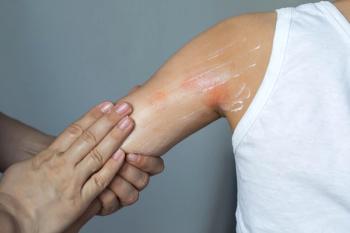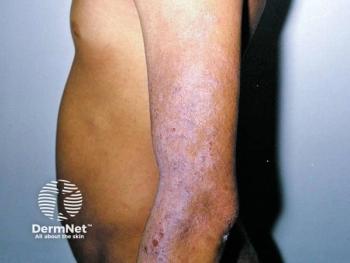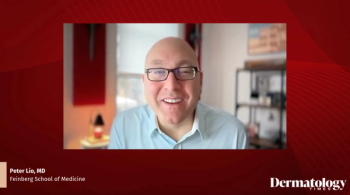
FDA grants landmark OK to botanical
National report - The Food and Drug Administration's first approved prescription botanical in modern times is - not surprisingly - a green tea extract that happens to have a dermatologic indication.
The new drug, Polyphenon E 15% by MediGene AG, was approved in October. It is indicated for the treatment of external genital and perianal warts caused by certain strains of human papillomavirus (HPV) in patients ages 18 and older.
It is the first botanical to be approved by the FDA since the new drug amendments of 1962 required drugs to be proven both safe and effective.
The landmark approval of a botanical-based therapy isn't even the first time that HPV-caused genital and perianal warts made big headlines in 2006. The first was, of course, the arrival of the groundbreaking new HPV vaccine, Gardasil.
Gardasil holds promise of transforming society's struggles with the HPV virus by protecting against the four types that cause 70 percent of cervical cancers and 90 percent of genital warts.
But years could pass before the vaccine's impact is seen, and even then, dermatologists can still expect to see plenty of patients with genital and perianal warts.
"We won't really see the epidemiological impact of the vaccine for a while, so we'll have lots of warts to deal with for many years to come," says Jeffrey M. Weinberg, M.D., director of clinical research in the Beth Israel Deaconess Medical Center's Department of Dermatology in New York.
Dermatologists currently have the popular treatments of cryotherapy and imiquimod among choices for treatment of genital and perianal warts, but Dr. Weinberg says there is always room for more options.
"I think it's very useful to have another topical option, because there are always those patients who don't want cryotherapy due to the pain or some other reason," he says. "So only time and experience will show us which of these compounds we should reach for."
'Alternative' medicine?
A big factor that may cause some to hesitate before reaching for Polyphenon E, however, is the very characteristic that makes it so unique - its classification as a "botanical."
The mere mention of the word may suggest to some that it falls into the category of alternative or complementary medicine.
But the FDA's approval should put those thoughts to rest, says Freddie Ann Hoffman, M.D., an expert on botanical drugs and chief executive officer of HeteroGeneity, a Washington, D.C., consulting firm for companies seeking to market botanically based drugs.
"It's very important to get the message out that this is not complementary or alternative medicine," she stresses. "This is as mainstream as any drug a dermatologist would prescribe to a patient - it has all the data, all the science and all the consistency that you would find with any other drug."
Importantly, the product is not a generic concoction of green tea extract, but a proprietary mixture of phytochemicals that is unique and not interchangeable.
"This approval is exciting because it finally gives credibility to green tea as an active - but only this product and this mixture," Dr. Hoffman says. "You can't just pull green tea leaves off of your shelf, mix them up and duplicate this."
Logical first step
Genital and perianal warts represent a logical first place for the FDA to dip its toe into botanicals, Dr. Hoffman says.
Newsletter
Like what you’re reading? Subscribe to Dermatology Times for weekly updates on therapies, innovations, and real-world practice tips.












